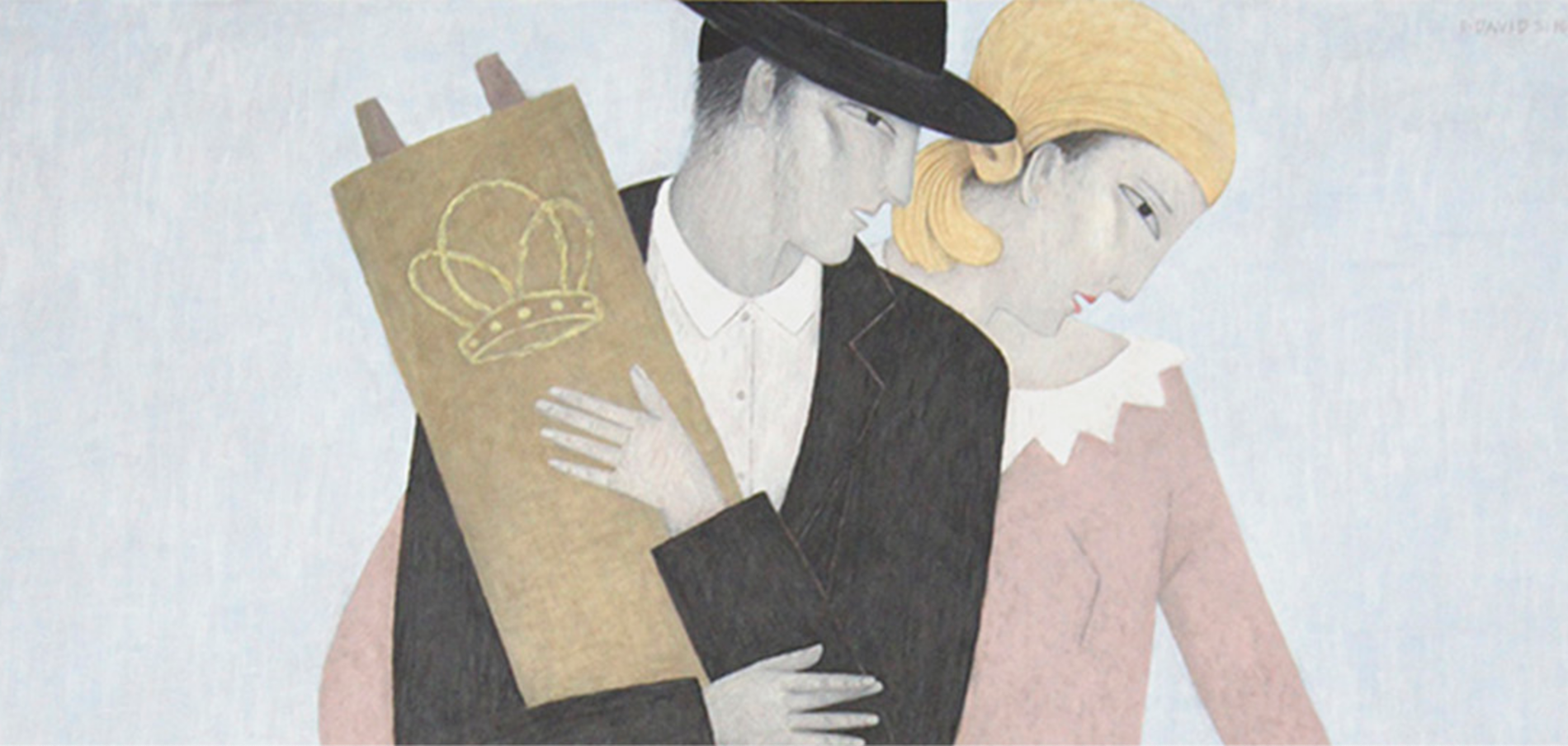Why Do Orthodox Jewish Men Have Beards?
Dear Jew in the City-
Why do a lot of Orthodox Jewish men have beards?
Sincerely,
Steve
Dear Steve-
Thanks for your question, which we intentionally arranged to answer following last week’s question, which was on payes (sidelocks).
As we mentioned there, Leviticus 19:27 contains two prohibitions, not to round the corners of the head – which is why Jewish men wear payes – and not destroying the corners of the beard. There’s a surprising amount to talk about here, and the sources I’m going to cite are really just the tip of a much bigger iceberg.
For starters, according to the Talmud in Makkos (21a) the halachic definition of “destroying” is with a razor. Ostensibly, it is therefore permitted for a man to remove his facial hair with scissors or a depilatory. This is the conventional wisdom on the matter but things are rarely that cut-and-dried.
The Rambam (Maimonides) codifies this law in Hilchos Avodas Kochavim 12:7. There he writes that one would be liable to the penalty of lashes for shaving with a razor but he would be exempt from punishment if he uses scissors. In 12:8, Rambam calls trimming the mustache permitted. Contrast his language of “permitted” in 12:8 with “exempt” in 12:7. Many authorities infer that the Rambam’s position is that trimming beard with scissors is what we call “patur aval asur” – exempt from punishment but still prohibited. (It should be noted that this is not a stretch by any means; it’s actually the simplest reading of the text.) But of course, not all authorities reach this conclusion, nor would Maimonides’ interpretation of this law necessarily be the only one.
Let’s leave aside the matter of Jewish law for a second and look at some philosophical thoughts on beards in Judaism:
- The Midrash in Bemidbar Rabbah (10:1) tells us that the Torah distinguishes every aspect of Jewish behavior from that of other nations. This extends even to the way we wear our facial hair, based on the aforementioned prohibition in Leviticus 19:27;
- The Talmud in Shabbos (152a) refers to the beard as “the splendor of one’s face”;
- The Radak, a 12th-13th century authority, comments on events 2 Samuel chapter 10, in which some Jews were forcibly shaved by the enemy in an attempt to humiliate them, that the Jewish practice since Biblical times was not to cut the beard, not even with scissors.
So, if our traditional sources place so much emphasis on having a beard, and if lack of a beard was always considered shameful, how did we get to the point of people even wanting to remove their facial hair? And how did it become so accepted in both practice and philosophy?
The Chasam Sofer, an 18th-19th century authority, writes that the practice of Jews cutting their beards started in Germany in 1096, the time of the Crusades, as the result of harsh decrees against the Jews. For reasons of security, Jews needed to be less conspicuous, so they started cutting their beards and dressing in styles more in line with the surrounding culture. The authorities of the time permitted this, so there was a reason to employee the “permissible” (or “exempt”) forms of hair removal. It’s quite possible that others later relied upon this leniency, perhaps inappropriately in that they lacked the context of compelling extenuating circumstances.
So one could argue that removing one’s beard with something other than a razor is inherently permitted or inherently prohibited, though acceptable in certain situations. According to the latter position, “extenuating circumstances” doesn’t have to mean Nazi-like oppression. For example, the Talmud on Sotah 49b tells us the household of Rabban Gamliel were allowed to wear their hair in decidedly non-Jewish fashions because they worked closely with the secular rulers. Arguably, such a situation would also apply to trimming the beard without use of a razor. (For similar reasons, many Jews in the public arena might not refrain from shaving during sefirah or the Three Weeks.)
Lest one think that the anti-shaving position is “fundamentalist” or “extremist,” the Chofetz Chaim – author of the Mishnah Brurah (which is about as mainstream a contemporary halacha work one could find) – wrote an entire treatise against cutting the beard, called Tiferes Adam (The Glory of Man).
It should also be noted that, halachic issues aside, many grow their beards longer for kabbalistic reasons. According to the Zohar and other sources, one’s beard is a conduit for Divine favor and mercy, with the result that trimming it at all is a pretty big deal! Kabbalistic reasons need not influence halachic practice but many feel that if kabbalah and halacha don’t conflict (as they don’t in this case), then it is advisable to follow the kabbalistic rationale.
Finally, there’s the matter of electric shavers. Assuming that one may shave with something other than a razor, electric shavers are kind of a gray area. Some would be acceptable but some are too razor-like to be permitted even according to the lenient positions. If one is in doubt about the permissibility of a particular model of shaver, it is advisable to contact one’s own rabbi for guidance in this area.
Bottom line, some maintain that it is permitted to remove facial hair other than with a razor (the prevalent position in Modern Orthodox circles), some maintain that it is prohibited except in extenuating circumstances, while others feel very strongly that, questions of permissibility aside, it’s just an extremely bad idea and should be avoided. Whatever one’s position, they do have halachic precedent to rely upon and we should always be respectful of one another’s practice.
Sincerely,
Rabbi Jack Abramowitz
JITC Educational Correspondent
If you found this content meaningful and want to help further our mission through our Keter, Makom, and Tikun branches, please consider becoming a Change Maker today.







